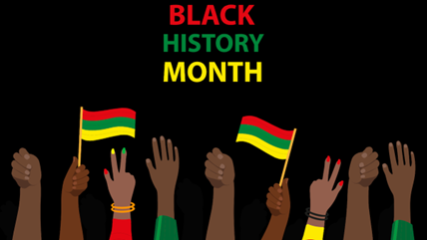February 2,2024/12a

The month of February is known as Black History Month in the US. During this month, the nation observes the remarkable history of the extraordinary Black men and women who contributed to the development of the nation as we know it today.
The month of February is a time for Black Americans and others to celebrate and recognize the achievements of their ancestors and to give a spotlight to the many prominent Black figures who were pioneers in numerous industries that are not normally celebrated otherwise.
Every year Black History Month is assigned a theme. This year (2024) the theme is “African Americans and the Arts” according to The Oklahoman. Previous themes have been, Black Resistance (2023), Black Health and Wellness (2022), The Black Family, (2021), African Americans and the Vote (2020), and Black Migrations (2019) to name a few.
Today, we have the privilege to celebrate Black History for the entire month of February, but when the celebration first started it was only one week. In 1924 Harvard-trained, American historian and author, Carter G. Woodson, later nicknamed “the father of Black history” wanted to designate a specific time to research and educate the community about the achievements and accomplishments of Black Americans, according to NPR.
Woodson believed young Black Americans were not adequately taught about their heritage in this country and believed that Black history was something that should be studied and taught more extensively in the average school curriculum.
With the goal of education in mind, Woodson would partner with his fraternity Omega Psi Phi, to create the Association for the Study of Negro Life and History (ASNLH), according to History.com. The ASNLH, now known as the Association for the Study of African American Life and History (ASALH), would promote “Negro History Week” to be observed the second week of February within public schools and some other educational organizations.
As word spread and racial tension in the country pressed on, many more schools and education groups would adopt the concept of Negro History Week. Around the 1940s the incentive to extent Negro History Week was already brewing.
It was not until 1976 when the ASALH would openly start to advertise Black History Month, which would be observed institutionally during the entire month of February. The month was first recognized by the government that same year by President Gerald Ford who encouraged the public to acknowledge the achievements of their Black counterparts and to properly accredit the accomplishments of the Black Americans.
So, why the month of February? This month was not picked at random. Woodson chose the month of February as the month to observe Black history for two reasons. First, the birthday of the 16th President of the United States, Abraham Lincoln, is on February 12. This is significant because during Lincoln’s presidency he issued the Emancipation Proclamation, which declared that “all free persons held as slaves” in the rebellious south “are, and henceforth shall be free,” according to National Archives. Second, Black History Month is held in February because, African American abolitionist, author, and orator, Frederick Douglas marked February 14 as his birthday.
Both Douglas and Lincoln were central figures in Black history, and they have been celebrated for their efforts and contributions to Black history and civil rights in the US. For these reasons Woodson believed that February was the appropriate month to observe this history.
Today, Black History Month is one of the nation’s oldest organized celebrations of history. Other countries around the world including the United Kingdom and Canada have established their own forms of Black History Month, also observed in February.
Many historians and observers believe that Black history is not something that should only be celebrated in February, and even Woodson agreed. The impact of Black Americans over the course of the history of the United States and the rest of the world is felt regularly. Being aware of the amazing triumphs that specifically Black Americans have made in areas such as music, business, literature, technology, fashion, language, and the arts is something that the world should celebrate all-year-round.







